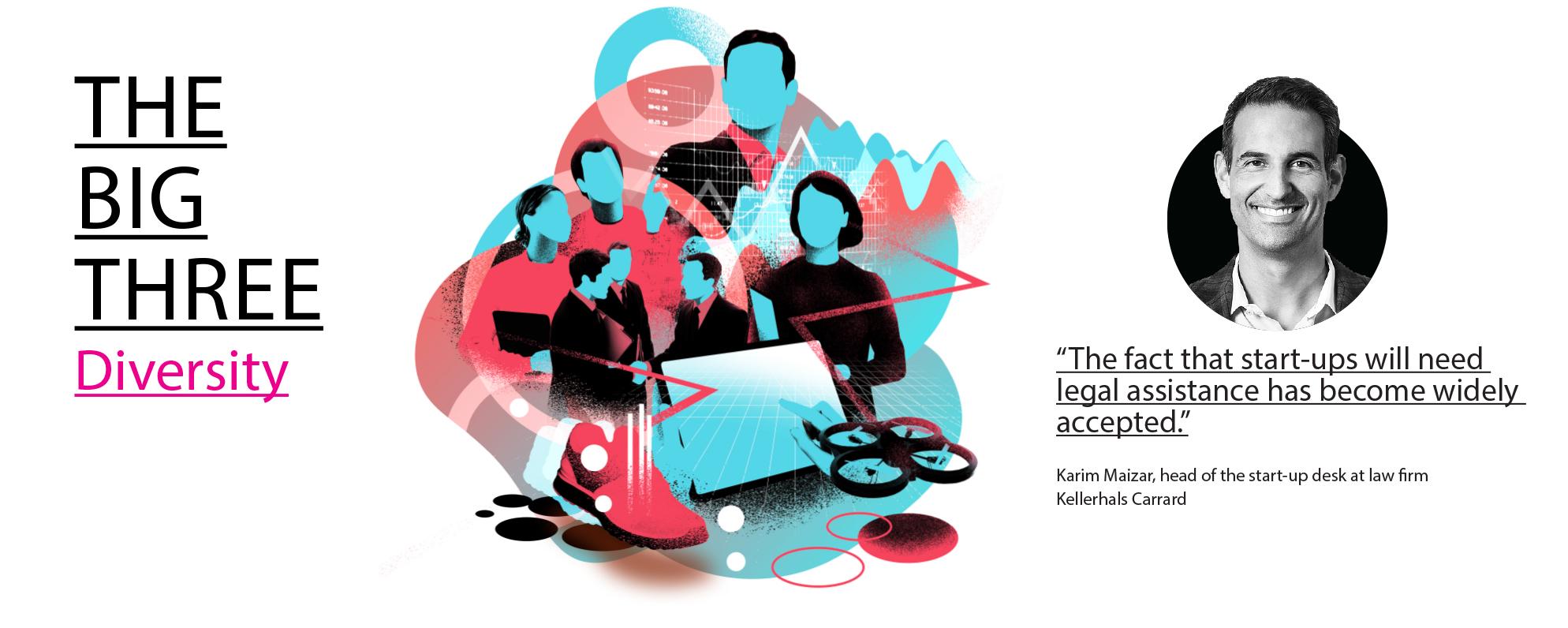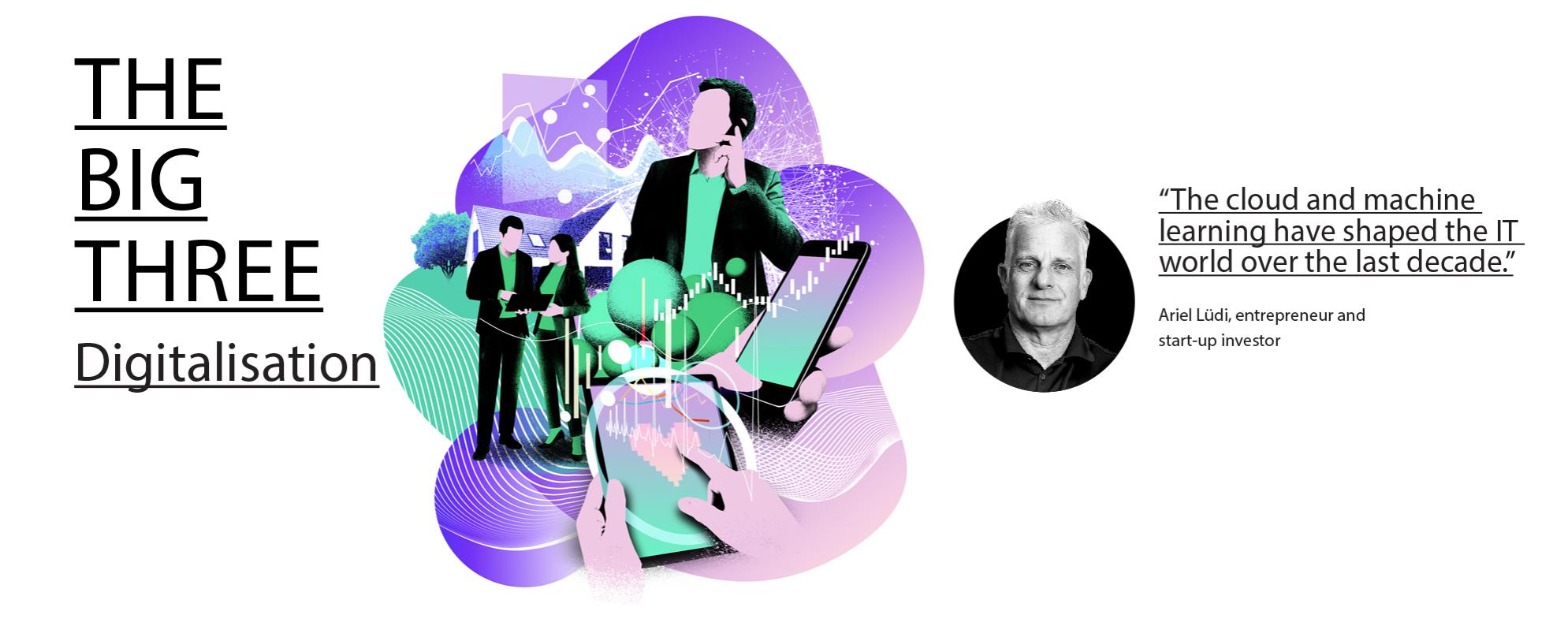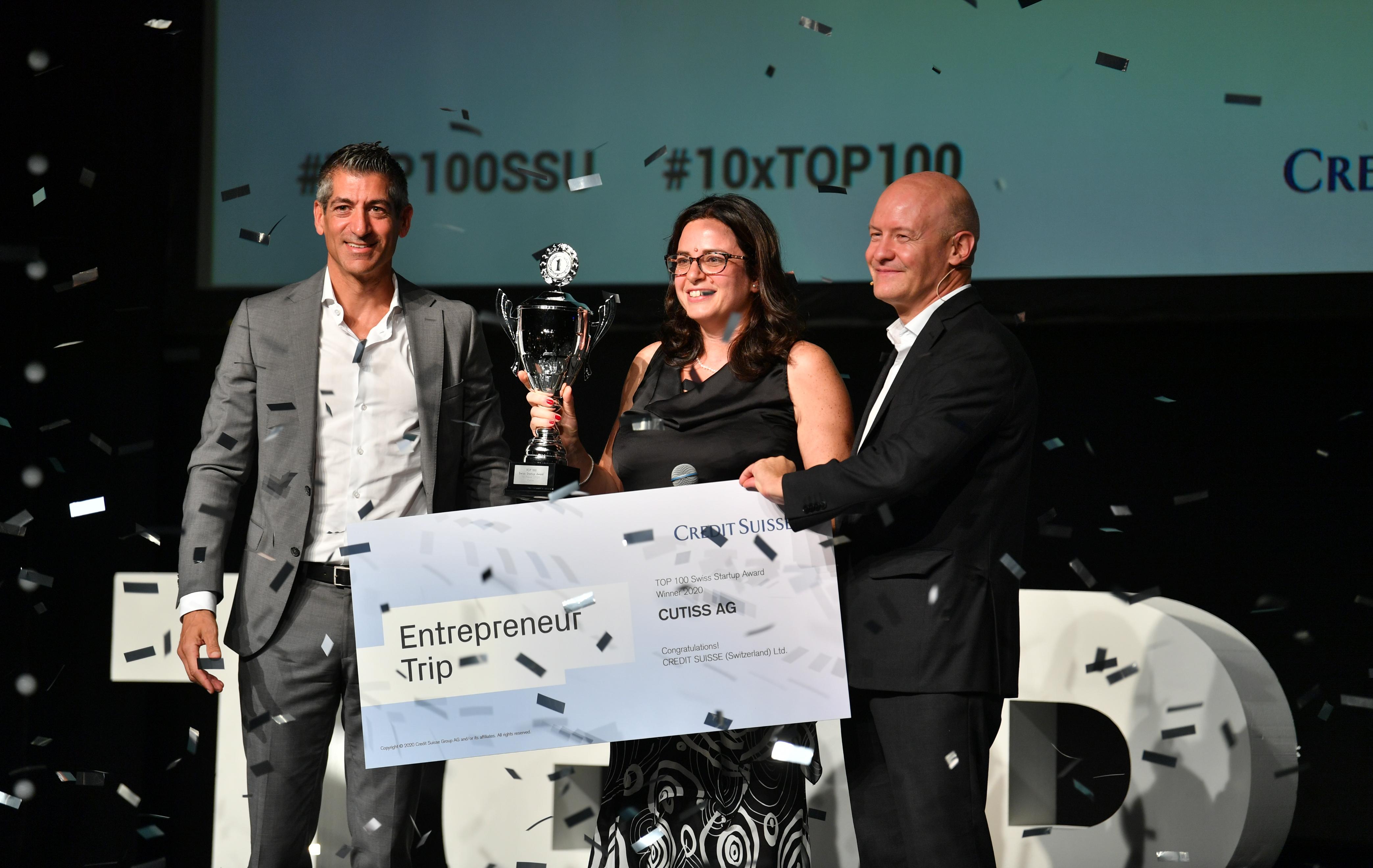Roger Federer, machine learning and success in Asia. Based on three megatrends, we show how the startup ecosystem has changed since the launch of the first TOP 100 Swiss Startup Award in 2011. We talked to Felix Moesner, CEO of support network swissnex, about the global ambitions of Swiss startups.

“Incredible,” says Patrick Trinkler. “I’ve never seen anything like it.” The founder of Vaud-based IT security startup Cysec (62) has been in business for 20 years, but the interest shown in his high-security server for sensitive data and applications by visitors to the Fintech Festival Singapore overwhelmed him. Shortly after the mega event last November, he rented a local co-working space. Now Cysec, founded in 2018, plans to move into its own offices in Singapore by the end of the year at the latest.
“The Swiss innovation scene has an excellent reputation abroad,” comments Felix Moesner, CEO of support network swissnex China. Moesner has lived in Shanghai since 2017 and has provided more than 200 startups from home with information and contacts in a country with an estimated 8,000 accelerators, incubators, innovation parks and co-working spaces. The Swiss economy generates 40% of its added value abroad. How high this value is for startups, and how much it has increased over the past few years, has not yet been ascertained. What is certain, however, is that the ecosystem is strongly export-oriented: according to a study by support agency Innosuisse, 60% of startups are active across borders.
For some of the most successful startups of the decade, the home market contributed only a fraction of sales. Companies such as Scandit (TOP 100 2011-2014), GetYourGuide (TOP 100 2011-2013) and Optotune (winner 2011) implement a business plan that works only on an international scale. And healthtech provider Ava (TOP 100 2015-2019) did not even use Switzerland as a test market: the first cycle trackers were marketed by a local team in the US. “In China, Swiss startups are looking primarily for partners and investors,” says Moesner. Or they want to be close to the largest industrial manufacturing base in the world; for example, EPFL spin-off Rovenso (TOP 100 2017) markets its inspection robots from Shenzen. The autonomous machines patrol the customer’s company areas and detect unusual events such as leaks or the intrusion of unauthorised persons.
Zug-based fintech startup Instimatch Global (77) provides financial services – and the name indicates its global ambition. “We want to become the international ‘place to go’ for corporate treasurers and public authorities,” says CEO Daniel Sandmeier. More than 100 parties currently process money market transactions with a daily volume of up to CHF 5 billion through Instimatch Global. The platform is programmed and further developed in India, and the market processing takes place in Zurich, London or Doha. In Qatar, the firm was able to win a member of the royal family as a partner. “Our internationalisation strategy benefits from the relationships and experience of the founders in the financial sector,” explains Sandmeier.
The federal government and private support institutions have set up numerous funding programmes for young entrepreneurs without networks in the target markets over the past decade and a half. Venture Leaders, for example, connects selected startups with investors and potential customers in global innovation hotspots: the greater Boston area since 2005, China and New York since 2014, Silicon Valley since 2017 and Barcelona since last year. Innosuisse started its market entry and validation camps in 2010; today, they take place in the US, China, the UK, India and Brazil. In addition, the federal government launched a trade fair programme for startups in 2018.
When Swiss startups go to China with Venture Leaders or Innosuisse, their host is Moesner in both cases. The 52-year-old from eastern Switzerland started his career as a pacesetter for the Swiss innovation scene in Japan; this led him to China via Boston. In Tokyo, he acted in the capacity of science councillor at the Swiss embassy. Today, he has up to 18 employees and an office on the 22nd floor of a high-rise building in the centre of Shanghai. “The international impact of Swiss startups is enormous,” says Moesner. As evidence, he cites the last edition of electronics fair CES Asia in June 2019, where almost no country received more awards than Switzerland. The six products honoured included a 3D printing solution from Spectroplast (TOP 100 2019) and Rovenso’s industrial robot.
This is the second of three parts of Jost Dubacher’s TOP 100 Swiss Startup Magazine 2020 article on the evolution of the Swiss startup ecosystem. Read the first part, Ariel Lüdi's thoughts on digitalisation, and the third part, Karim Maizar's reflections on diversity.




